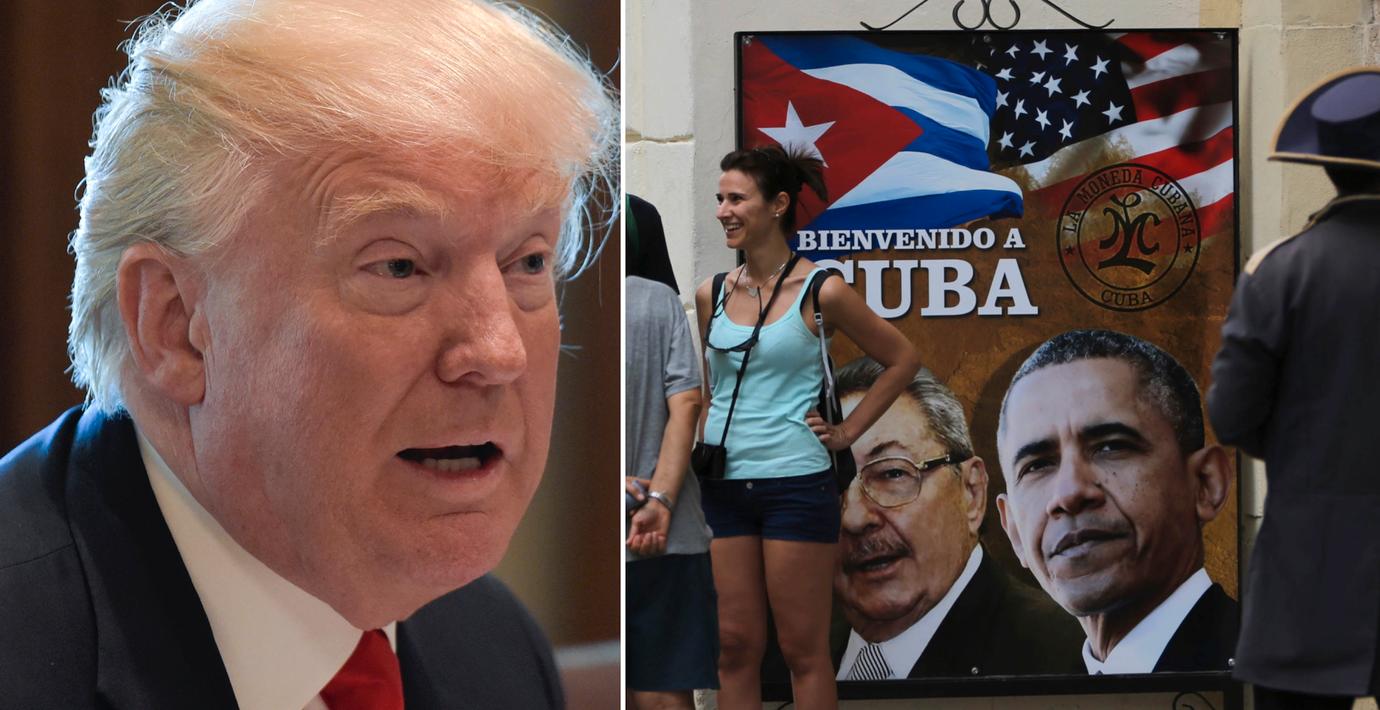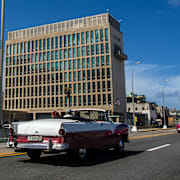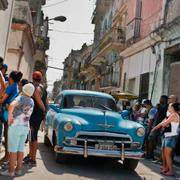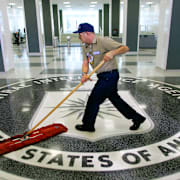
Vill förbjuda Kubaresor – ”i solidaritet med folket”
Donald Trump tänker göra verklighet av ännu ett vallöfte. På fredag väntas presidenten presentera åtgärder som på nytt fryser den nyss upptinade relationen med Kuba. Enligt Politico kommer presidenten i praktiken förbjuda turistresor till ön och lyfta fram det 56 år gamla handelsembargot. Åtgärderna suddar därmed ut det historiska öppnandet till Kuba som Barack Obama gjorde under sin sista mandatperiod.
Enligt Trumpadministrationen är målet att stoppa alla affärsförbindelser som finansiellt gynnar den kommunistiska Castroregimen.
”Min administrations politik guidas av USA:s säkerhetsintresse och solidaritet med det kubanska folket”, står det i ett utkast till åtgärdspaketet som Politico tagit del av.
bakgrund
Relationerna mellan Kuba och USA
Wikipedia (en)
Cuba and the United States restored diplomatic relations on 20 July 2015, which had been severed in 1961 during the Cold War. U.S. diplomatic representation in Cuba is handled by the United States Embassy in Havana, and there is a similar Cuban Embassy in Washington, D.C.. The United States, however, continues to maintain its commercial, economic, and financial embargo, which makes it illegal for U.S. corporations to do business with Cuba. Leaders in both houses of Congress as well as President Donald Trump support the embargo, although the Cuban government has called for it to be repealed.
The hold of the Spanish Empire on possessions in the Americas was reduced in the 1820s as a result of the Spanish American wars of independence; only Cuba and Puerto Rico remained under Spanish rule until the Spanish–American War (1898) that resulted from the Cuban War of Independence. Under the Treaty of Paris, Cuba became a U.S. protectorate; the U.S. gained a position of economic and political dominance over the island, which persisted after it became formally independent in 1902.
Following the Cuban Revolution of 1959, bilateral relations deteriorated substantially. In 1961, the U.S. severed diplomatic ties with Cuba and began pursuing covert operations to topple the Communist regime. Moreover, the U.S. imposed and subsequently tightened a comprehensive set of restrictions and bans vis-à-vis the Cuban regime as retaliation for the nationalization of U.S. corporations' property by Cuba. Meanwhile, several organizations, including a nearly unanimous UN General Assembly, have called for "an end to the United States' decades-long economic, commercial and financial embargo against Cuba."
On 17 December 2014, U.S. President Barack Obama and Cuban President Raúl Castro announced the beginning of a process of normalizing relations between Cuba and the U.S., which media sources have named "the Cuban Thaw". Negotiated in secret in Canada and Vatican City over preceding months, and with the assistance of Pope Francis, the agreement led to the lifting of some U.S. travel restrictions, fewer restrictions on remittances, U.S. banks access to the Cuban financial system, and the establishment of a U.S. embassy in Havana, which closed after Cuba became closely allied with the USSR in 1961. The countries' respective "interests sections" in one another's capitals were upgraded to embassies on 20 July 2015. On 20 March 2016, President Barack Obama visited Cuba, becoming the first President in 88 years to visit the island.
Omni är politiskt obundna och oberoende. Vi strävar efter att ge fler perspektiv på nyheterna. Har du frågor eller synpunkter kring vår rapportering? Kontakta redaktionen


